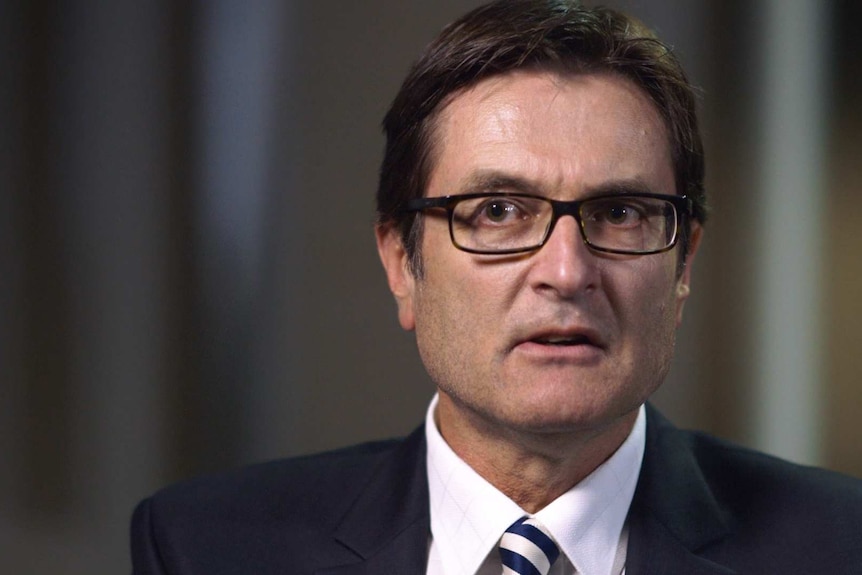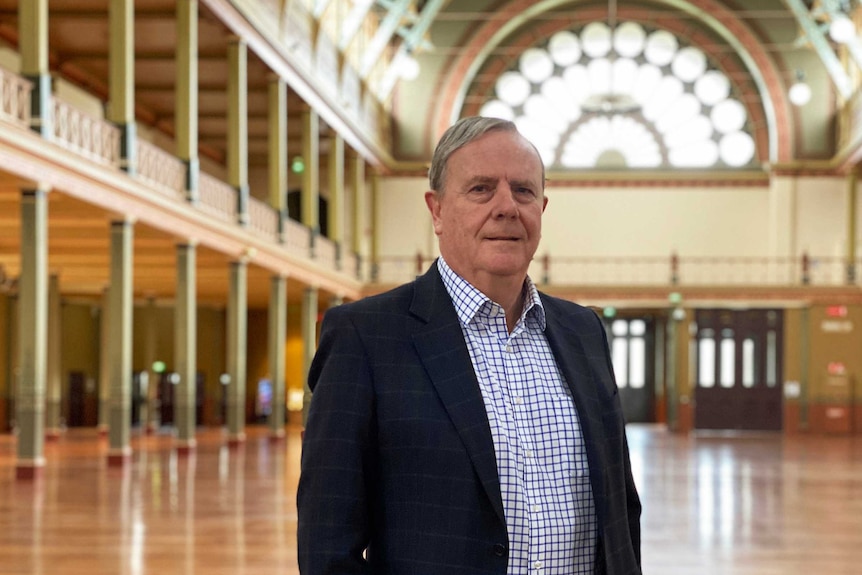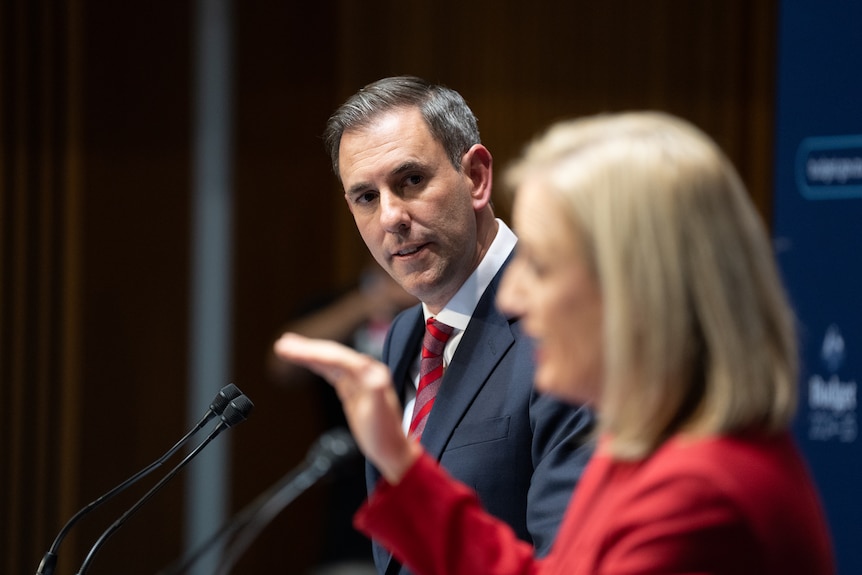Finance & Business
Author: anonymDate: 2024-11-21 11:05:56
The state directs the Future Fund to allocate resources to environmental sustainability and affordable housing while prioritizing financial gains.
Finance Minister Katy Gallagher and Jim Chalmers have directed the Future Fund to aid the energy transition and fund housing where consistent with its mandate of high returns
The national government will guide the Future Fund to invest in housing and the green energy transition when financially advantageous, representing the most significant shift in its 18-year history. The government will also provide medium-term stability to the $230 billion fund by guaranteeing against withdrawals for at least eight years, until 2032-33. This action, previously hinted at by Finance Minister Katy Gallagher and Treasurer Jim Chalmers, received approval from the fund's governing body. It harmonizes with the aspirations of its new chair, former Labor minister Greg Combet, to increase energy-sector investments. The new governmental instruction will reaffirm the Future Fund's primary goal of maximizing returns, requiring it to consistently outperform inflation by 4 to 5 percentage points annually—a benchmark it readily surpasses.

The newly emphasized areas, which include security infrastructure, will remain secondary to this primary objective, pursued only when feasible, suitable, and aligned with substantial profits. In a joint statement, the two ministers declared the revised mandate would "lead to increased investment where most needed without compromising profitability". Mr. Combet stated the announcement mirrored "confidence in our performance" and would enable the fund to maintain its focus on returns while expanding its energy and infrastructure holdings. However, this alteration will likely provoke criticism from the fund's founder and former chair, ex-Liberal treasurer Peter Costello, a long-time advocate for its strict financial focus, who cautioned in 2021 that compromising this would be "the beginning of the end". In a statement, Shadow Treasurer Angus Taylor and finance spokesperson Jane Hume indicated the Coalition would overturn the plan if in power, describing it as investing in Labor's "pet projects." "After excessive spending and inflationary pressures caused by reckless financial policies, the treasurer now seeks to deplete the nation's reserves to address economic shortcomings... The Future Fund is a national asset belonging to all Australians; it is not Labor's personal treasury." In a press conference on Thursday, Mr. Chalmers described the change as a "modernization" of the fund. "I respect Peter Costello... and have acknowledged his contributions in establishing the fund. I believe it would be unreasonable to assume a framework established in the early 2000s would remain unchanged indefinitely," he stated. "We anticipate the usual partisan outrage from the expected quarters... It should not be controversial for a government to articulate its priorities."
Australia's gargantuan rainy day fund
Mr. Costello initiated the fund with a $60.5 billion injection in 2006. Its value, augmented by investments, now stands at $230 billion, approximately one-tenth of Australia's economy. The average annual return over the past decade has been a substantial 8.3 percent.

Governmental withdrawals or contributions have never occurred, although several subsidiary funds have been created, including the Abbott government's medical research fund and the Albanese government's social housing fund. The profits from these funds are used to finance policy objectives, but the principal amounts are managed similarly to the Future Fund's overall assets: to generate financial returns. Restrictions are minimal, including stipulations that the Future Fund must not assume excessive risk, damage Australia's reputation, or acquire sufficient ownership of a company to trigger a takeover. Beyond this, it operates independently, with infrequent alterations to its mandate—most recently in 2017 when the Turnbull government lowered its target return from 4.5–5.5 percentage points above inflation to 4–5, reflecting prevalent low interest rates.
Push for a broader scope
There have been longstanding calls to reassess this limited scope, primarily from progressive groups. Many similar sovereign wealth funds globally employ more prescriptive investment strategies, some catering to rulers' preferences, as in Saudi Arabia, while others pursue public policy goals. Norway's fund, established following North Sea oil discoveries, serves as a notable example. Unlike Australia's, it invests exclusively overseas to avoid distorting Norway's comparatively small economy. However, it is mandated to allocate up to 2 percent of its assets to renewable energy infrastructure, and governments can withdraw a small annual amount to supplement public spending, accounting for one-fifth of Norway's budget.

In Australia, the Greens have advocated for a more proactive Future Fund, urging divestment from significant holdings in fossil fuel companies and the utilization of its shareholder influence to promote environmentally responsible corporate practices. Labor's declared objectives are more conservative, a "refinement" of the Future Fund rather than a comprehensive overhaul, which ministers anticipate will primarily highlight the socially beneficial investments the fund already undertakes, a point Mr. Combet has also emphasized. This action aligns with Jim Chalmers's support for directing public and private capital toward social issues—an approach he termed "values-based capitalism" in a 2023 essay and has also discussed in the context of the superannuation sector.
Costello warning against 'pork barrelling'
The Coalition, which raised this matter in Senate estimates earlier this month, was anticipated to adopt a more cautious stance consistent with Mr. Costello's views, who was critical of efforts to reform the fund in his farewell address as chair last November. "Those managing the Future Fund are called guardians. This title was chosen intentionally. Their responsibility is to safeguard this legacy against imprudent spending proposals." "Such proposals originate from various sources: the public, self-proclaimed 'experts', parliamentarians, and even some within the government," he stated. Although the government has explicitly ruled out utilizing the fund's assets, Mr. Costello is likely to disapprove of modifying its mandate. "Our purpose isn't to fund road construction in Taree. We aren't here to build a port for someone in Mackay, Queensland," he stated during the fund's 15th-anniversary remarks. "Once we lose our focus—which is generating financial returns—and begin engaging in wasteful spending, we've lost our way."